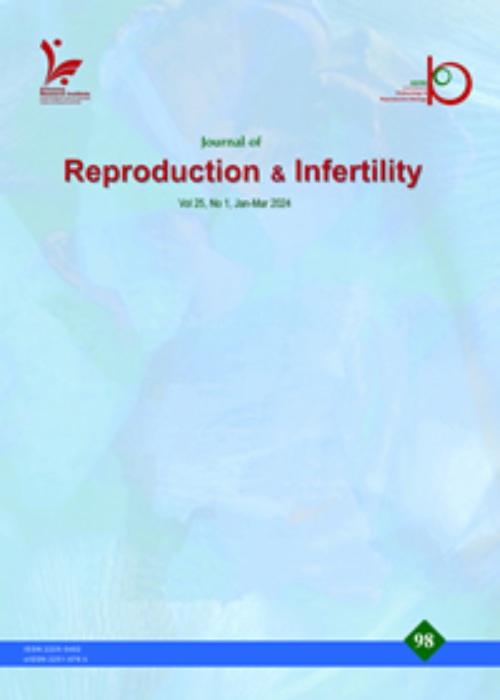Cloning and Interfering Factors
Author(s):
Abstract:
Background
The term “Cloning” has originated from “Klon”, a Greek word with the meaning of a small twig that can multiply by itself and turn to a generative tree. Cloning is an asexual reproduction in which a copy or multiple copies of an organism are generated by transferring the nucleus (DNA) of a somatic cell into an enucleated metaphase-II oocyte. Despite the benefits and potentially broad applications of this technology, its low efficiency, especially in the production of viable offspring, has implicated its application with serious challenges. In this article, we will review papers related to its emerging principles, with an emphasis on epigenetic modifications, which appear to govern the efficiency of cloning. Methods
The literature review was carried out by searching through knowledge-based data bases such as ScienceDirect, PubMed and Scopus on the internet. No time limit was considered for literature review of the relevant articles up to the time of submission.Results
Considering the large varieties of factors affecting cloning, improvements in cloning efficiency are dependent on the increment of theoretical knowledge and technical expertise of its procedures. This can be achieved by improving oocyte and cytoplasmic maturation, optimizing synchronization between the nucleus of the donor cell and cytoplasm of MII stage oocyte, minimizing the physical insults to the cytoskeleton of oocyte during enucleation and nuclear transfer, improving the cellular fusion and culture conditions of reconstructed oocytes and in particular and more importantly by employing effective methods to qualitatively alter the epigenetic status of the incoming nucleus to an embryonic or totipotent state, leading to the improvement of donor cell reprogramming. Considering the importance of inherited maternal transcripts and proteins in cytoplasm of fully matured oocytes in supporting the embryos up to the embryonic genomic activation (EGA) and the capability of MII stage cytoplasm in de-differentiating mammalian somatic cells and coincident of EGA with depletion of maternally originated transcripts, reprogramming of the somatic cell nuclei must be completed by the time that the embryonic genome is activated. Since the patterns of epigenetic modification are dynamic and not static during development, the optimum procedure to properly induce nuclear reprogramming should follow the pattern of epigenetic modifications in normal embryo development.Conclusion
Besides the all progresses in reproductive cloning using highly efficient methods, any deviation from the normal pattern of mRNA expression due to epigenetic changes induced by chemical interventions in early preimplantation embryo may persist throughout fetal development. The effects of these aberrations may manifest later in development. Nonetheless, understanding the kinetics of normal molecular events related to epigenetic modifications and identification of the specific factors present in the ooplasm, which are necessary for epigenetic reprogramming, will provide a better understanding of the underlying mechanisms and would improve cloning efficiency and other related technologies.Language:
Persian
Published:
Journal of Reproduction & Infertility, Volume:12 Issue: 2, 2011
Page:
47
magiran.com/p860354
دانلود و مطالعه متن این مقاله با یکی از روشهای زیر امکان پذیر است:
اشتراک شخصی
با عضویت و پرداخت آنلاین حق اشتراک یکساله به مبلغ 1,390,000ريال میتوانید 70 عنوان مطلب دانلود کنید!
اشتراک سازمانی
به کتابخانه دانشگاه یا محل کار خود پیشنهاد کنید تا اشتراک سازمانی این پایگاه را برای دسترسی نامحدود همه کاربران به متن مطالب تهیه نمایند!
توجه!
- حق عضویت دریافتی صرف حمایت از نشریات عضو و نگهداری، تکمیل و توسعه مگیران میشود.
- پرداخت حق اشتراک و دانلود مقالات اجازه بازنشر آن در سایر رسانههای چاپی و دیجیتال را به کاربر نمیدهد.
In order to view content subscription is required
Personal subscription
Subscribe magiran.com for 70 € euros via PayPal and download 70 articles during a year.
Organization subscription
Please contact us to subscribe your university or library for unlimited access!


